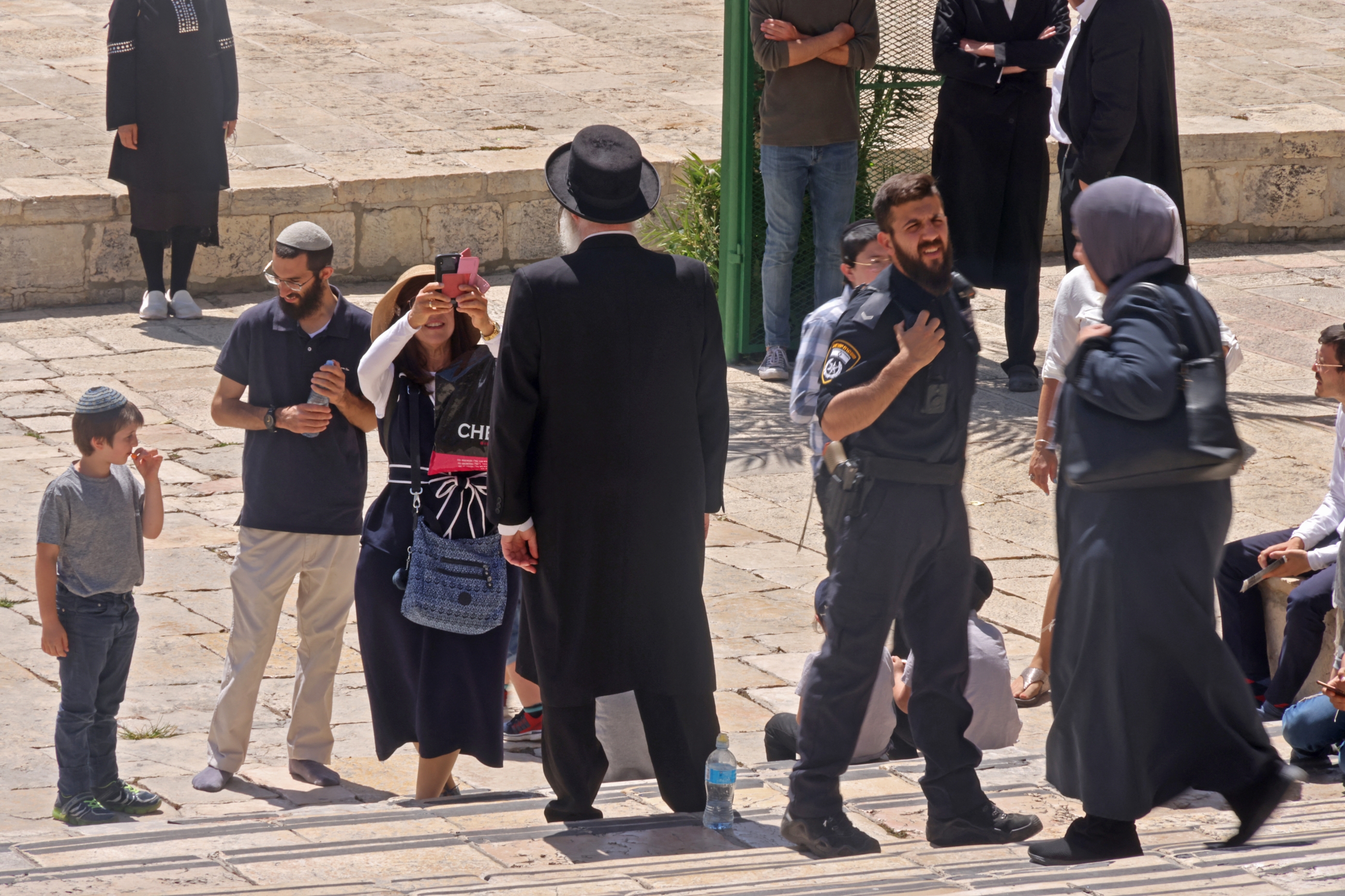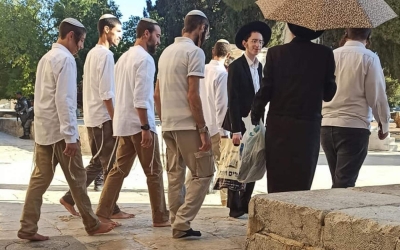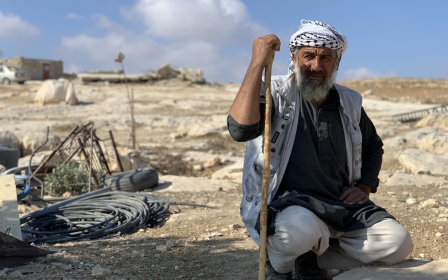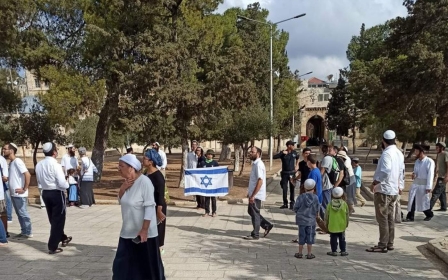Israel court allows Jewish silent prayer at al-Aqsa mosque compound

In a landmark decision on Wednesday, an Israeli judge ruled that silent prayer by Jewish worshippers at al-Aqsa mosque compound in occupied East Jerusalem was not a "criminal act", according to Israel's Channel 7 news.
Justice Bilha Yahalom of Jerusalem Magistrates' Court said Jewish prayer at the holy site could not be considered a "criminal act" if it remained silent, as it would not violate police instructions.
The ruling came after a case was brought forward by Rabbi Aryeh Lippo contesting a ban imposed by the police on his visits and prayers at the compound.
The judge ordered Lippo be allowed to return to his prayer at the site in Occupied East Jerusalem.
While Jewish worshippers are allowed access to al-Aqsa compound, known to Jews as the Temple Mount, they are not allowed to pray there.
New MEE newsletter: Jerusalem Dispatch
Sign up to get the latest insights and analysis on Israel-Palestine, alongside Turkey Unpacked and other MEE newsletters
Jordan, which has managed the Jerusalem Islamic Waqf - or endowment - since 1948, condemned the decision, stressing the Waqf held the sole legal authority to administer the affairs of al-Aqsa.
"The decision is a serious violation of the historical and legal status of al-Aqsa Mosque," Jordan's foreign ministry spokesman said in a statement.
Meanwhile, the Palestinian foreign ministry said the "unprecedented decision… constitutes a flagrant aggression against the blessed al-Aqsa Mosque".
In recent years the number of Jewish worshippers quietly praying on the site has increased, despite the long-standing agreement banning the practice between Jordanian authorities overseeing the compound and the Israeli government.
Heightened tensions
A growing far-right Jewish movement has been calling for Israel to take full control of al-Aqsa, arguing that it should be an exclusively Jewish holy site.
Jewish activists have repeatedly stormed the complex, prompting fears the Israeli government would strengthen its control over the third-holiest site in Islam.
While Muslim worshippers are often prevented from entering the complex, Israeli security officials have often been seen protecting Jewish settlers in prayer and blocking Muslim officials from interfering with Israeli visitors.
During this year Jewish holiday of Passover, the al-Aqsa Mosque compound witnessed a number of incidents viewed as attempts to breach the status quo on the site, including Jewish worshippers praying and loudly reading the Torah at the site.
Al-Aqsa mosque compound has been the site of rising tension between Palestinians and Israeli activists this year.
A raid by Israeli police on the mosque which left hundreds of Palestinians wounded helped trigger an 11-day war in May between Israel and Hamas in Gaza in May.
Last month thousands of Israelis broke into the complex following the end of the seven-day Jewish holiday of Sukkot.
Activists were joined by prominent members of the Israeli media, government ministers, Knesset members and senior Israeli officials.
Middle East Eye delivers independent and unrivalled coverage and analysis of the Middle East, North Africa and beyond. To learn more about republishing this content and the associated fees, please fill out this form. More about MEE can be found here.





